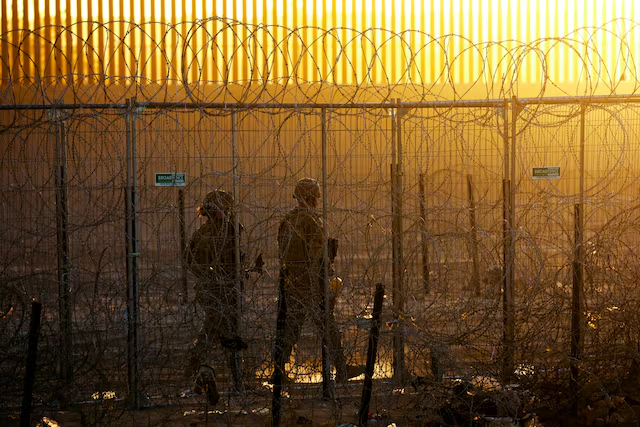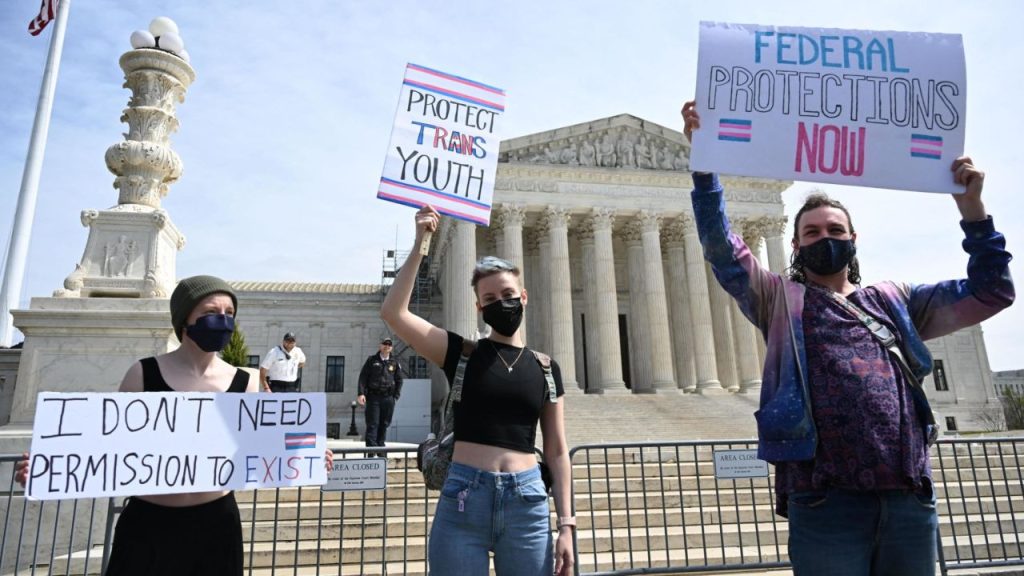Appeals court rules Texas has right to build razor wire border wall to deter illegal immigration: ‘Huge win’

The Appeals Court Decision
On December 11, 2024, the 5th U.S. Circuit Court of Appeals ruled in favor of Texas, affirming the state’s right to proceed with the construction of the controversial border wall, including the use of razor wire along the Rio Grande River and other areas prone to illegal crossings. The court’s decision overturned a lower court ruling that had previously blocked the project, stating that Texas’ actions were within its rights to address illegal immigration, particularly in the face of the ongoing crisis at the southern border.
The razor wire barrier, which is intended to deter migrants and asylum seekers from attempting to cross into the U.S., is part of a broader initiative by Texas to enhance border security and address what the state has described as an “invasion” of migrants entering the country illegally. Governor Abbott has repeatedly called for stronger measures to prevent human trafficking, drug smuggling, and other illegal activities associated with porous borders.
The ruling is being celebrated by Texas state officials and proponents of stricter immigration controls as a significant victory. “This is a huge win for Texas and a reaffirmation of our right to protect our citizens from illegal immigration,” Abbott said in a statement following the court’s decision. “The federal government has failed to secure our border, so Texas will continue to take the necessary steps to defend our state and our communities.”
The Border Wall Controversy
The decision to build a razor-wire border wall along the U.S.-Mexico border is deeply controversial. Proponents argue that the wall is essential to curb illegal immigration, which has surged in recent years. The situation along the southern border has become increasingly strained, with record numbers of migrants attempting to cross into the U.S. from Mexico. Many supporters of the wall view it as an effective deterrent to illegal crossings, human trafficking, and the smuggling of drugs and weapons.
The razor wire, in particular, is seen as a way to make crossing more dangerous and less likely, as it creates a physical barrier that can cause serious harm to anyone attempting to scale or cut through it. Texas officials contend that it is necessary to stop the flow of migrants and preserve the safety and security of communities along the border.
However, critics argue that the construction of the razor wire wall is inhumane and violates international human rights standards. The American Civil Liberties Union (ACLU) and other advocacy organizations have expressed strong opposition to the decision, warning that it could lead to increased danger for migrants, particularly children and families who are already at risk during their journey. They argue that the use of razor wire is cruel, potentially leading to serious injury or death for those attempting to cross. The wire could also complicate rescue efforts for those in distress, especially in remote areas of the border.
Environmental groups have also raised concerns about the wall’s impact on wildlife and ecosystems. The southern U.S. border is home to a wide variety of species, and the construction of large physical barriers could disrupt migration patterns and fragment habitats, exacerbating the challenges faced by endangered species. Environmentalists argue that the wall could have lasting negative effects on biodiversity, particularly in areas that are home to vulnerable wildlife populations.
Legal and Political Implications
The appeals court ruling has significant legal and political implications. While the decision affirms Texas’ right to proceed with the border wall, it also underscores the ongoing battle between state and federal authority over immigration policy. Governor Abbott has been vocal in his criticism of the Biden administration’s handling of the border crisis, claiming that the federal government has failed to take adequate action to secure the U.S.-Mexico border.
This ruling may embolden other states that have sought to implement tougher border security measures, despite the Biden administration’s push for more humane immigration policies. In recent months, several states, including Arizona and Florida, have proposed similar border security measures, including the use of military resources and law enforcement to address the crisis. However, such measures are often met with resistance from civil rights groups and political opponents who argue that these actions undermine federal authority and fail to address the root causes of migration.
For the Biden administration, the ruling represents another setback in its efforts to shift away from the Trump-era focus on physical border walls. While President Biden has sought to halt the expansion of border wall construction and emphasized the need for comprehensive immigration reform, legal challenges such as the one in Texas complicate these efforts. The administration has expressed its concern over the environmental and humanitarian impacts of border wall construction, yet it has found itself in a position where it must balance enforcement with its broader immigration goals.
Public and Political Reactions
The ruling has sparked strong reactions from both sides of the political spectrum. Supporters of the law enforcement approach to border security, including many Republicans and conservative groups, have hailed the decision as a much-needed victory in the fight against illegal immigration. They argue that the federal government’s failure to act has left states like Texas with no choice but to take matters into their own hands.
“Texas is doing what the federal government should have done years ago. This ruling shows that state sovereignty matters and that Texas has every right to protect its citizens from illegal immigration,” said one prominent Texas Republican official.
On the other hand, critics, including many Democrats, human rights organizations, and immigrant advocacy groups, argue that this ruling reflects a dangerous and shortsighted approach to immigration. They warn that building a wall with razor wire will only exacerbate the humanitarian crisis at the border, leading to more suffering, injury, and death among migrants.
Representative Veronica Escobar, a Democrat from Texas, condemned the decision, calling it “an inhumane policy that punishes those fleeing violence and seeking refuge.” She also emphasized that the wall would not address the root causes of migration, including poverty, violence, and instability in Central America and other regions.
The ruling from the 5th Circuit Court of Appeals is likely to have long-term implications for both Texas and the broader national debate over immigration. As the state moves forward with its plans to construct the razor wire wall, it remains to be seen how the federal government will respond, particularly if other states follow Texas’ lead. Additionally, the legal challenges are not over; critics may continue to challenge the wall’s construction in lower courts, and its implementation could face additional obstacles as it moves forward.
In the meantime, the debate over border security and immigration reform is expected to remain a central issue in American politics, particularly in the lead-up to the 2024 presidential election. As the situation on the U.S.-Mexico border continues to evolve, this ruling signals that the battle over how to secure the nation’s borders—and at what cost—will remain a point of contention for years to come.






